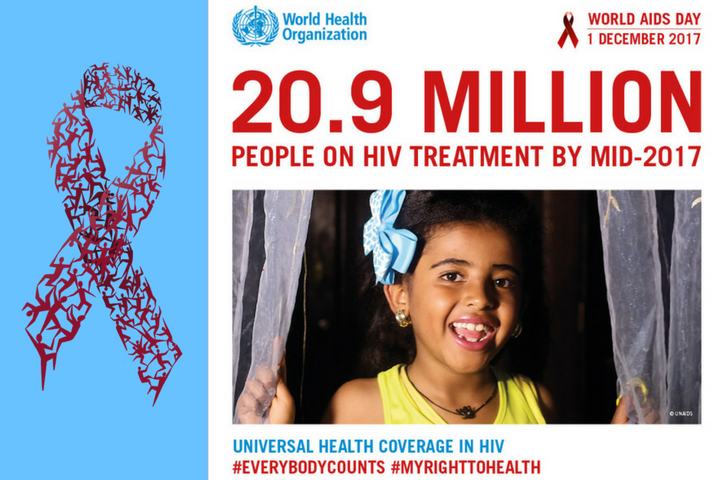“An HIV vaccine remains the first order of business for global health research”
| 1 December, 2017 | Alanna Orpen |
|

|

For World AIDS Day, and in recognition of this year’s #LetsEndIt campaign, we hear from our Faculty Members working on vaccines to protect against HIV Infection. We interviewed Faculty Member Antu Dey, Senior Director of Research & Development, at Vaccine Product Development Center of International AIDS Vaccine Initiative (IAVI). He explains how team work, cooperation, and community expertise are vital for vaccine research and development. We also speak with Jim Tartaglia and you can read the interview here.
 With 15 years of developing and manufacturing vaccine candidates against multiple infectious diseases for evaluation in human clinical trials, Antu Dey is Product Development leader at IAVI, responsible for managing, supporting and administering IAVI’s efforts to accelerate the development of HIV vaccine candidates and anti-HIV monoclonal antibody candidates for testing in Phase I/II human clinical trials.
With 15 years of developing and manufacturing vaccine candidates against multiple infectious diseases for evaluation in human clinical trials, Antu Dey is Product Development leader at IAVI, responsible for managing, supporting and administering IAVI’s efforts to accelerate the development of HIV vaccine candidates and anti-HIV monoclonal antibody candidates for testing in Phase I/II human clinical trials.
Antu was a key member of the team that manufactured the two HIV gp120 protein candidates for the P5 HIV clinical trials now conducted in Africa. He shares his thoughts on the current and future focus to reduce transmissions and increase access to treatment and why HIV vaccine remains the first order of business for global health research.
How does your work help with the development of new HIV vaccines?
Vaccine development is a compelling, and complicated, project. Even before early clinical trials, vaccine candidates move through pre-clinical Toxicology, process development, cGMP manufacturing, quality assurance and regulatory hurdles, and all of these take time.
In collaboration with HIV researchers, university investigators, clinicians, and others at IAVI, I work to support development and cGMP manufacturing of HIV vaccine candidates and anti-HIV broadly neutralizing antibodies for human clinical trial testing.
It’s always a great moment when new HIV vaccine candidates are discovered and validated in small studies. It may sound grandiose, but if we can make this process faster, we’ll have an effective vaccine sooner, prevent more infections, and save more lives.
Why is international collaboration important for HIV vaccine research and what advances are being made?
The key to success of solving any problem is teamwork. When the problem is as vast as developing an effective vaccine against HIV, scientific wisdom is needed from people with a range of complimentary expertise all over the world.
Cooperation among HIV researchers enables advance design and development of better HIV vaccine candidates. And because IAVI strongly believes that a vaccine must reflect the communities that will derive the greatest benefit, a lot of the foundation epidemiological work is conducted in sub-Saharan Africa where HIV researchers partner with local clinicians and affected communities that face a disproportionate HIV disease burden.
This year’s World AIDS day motto is ‘You helped fight HIV, now let’s end it’. The UK has seen the first significant reductions in HIV diagnoses, but there are still more than 100, 000 people living with HIV in the UK alone, of who, many still face discrimination. What needs to be done to overcome transmission and improve mental health for people living with HIV?
Global scale-up of antiretroviral medication is a true 21st century miracle. But treatment comes with great costs, and many communities remain on the margins with no access. That’s why an HIV vaccine remains the first order of business for global health research.
Social awareness and acceptance, educating the younger generation on how they can keep themselves from infection, and the use of a range of prevention products can help further reduce transmission. Improved mental health for people living with HIV often comes from reducing stigma.
So, if we continue on this path, reducing transmissions, increasing treatment access, and remaining vigilant about vaccine research, a generation may arrive that will know nothing of the stigma, and liberate all of us from its damaging effects.

|


User comments must be in English, comprehensible and relevant to the post under discussion. We reserve the right to remove any comments that we consider to be inappropriate, offensive or otherwise in breach of the User Comment Terms and Conditions. Commenters must not use a comment for personal attacks.
Click here to post comment and indicate that you accept the Commenting Terms and Conditions.